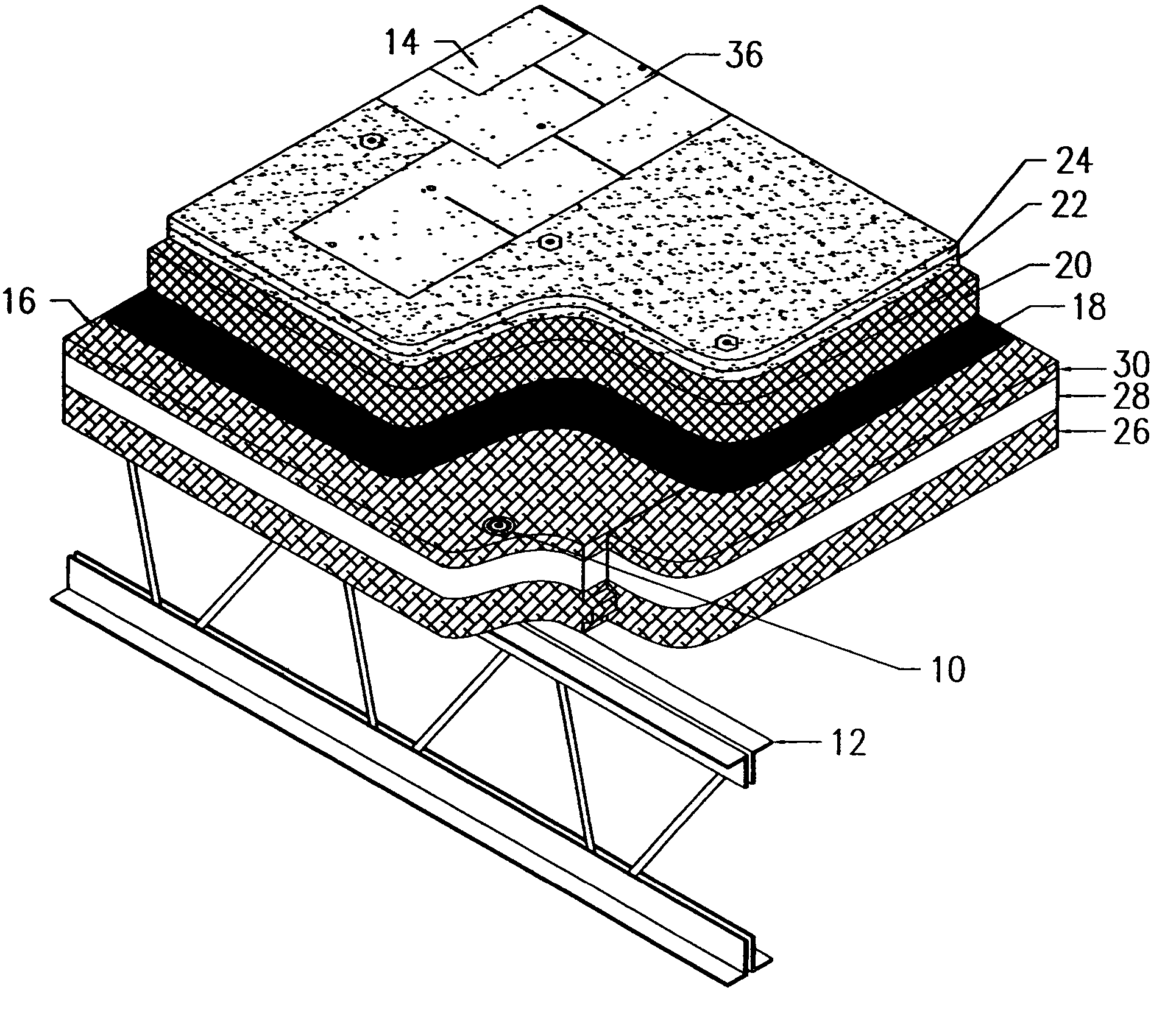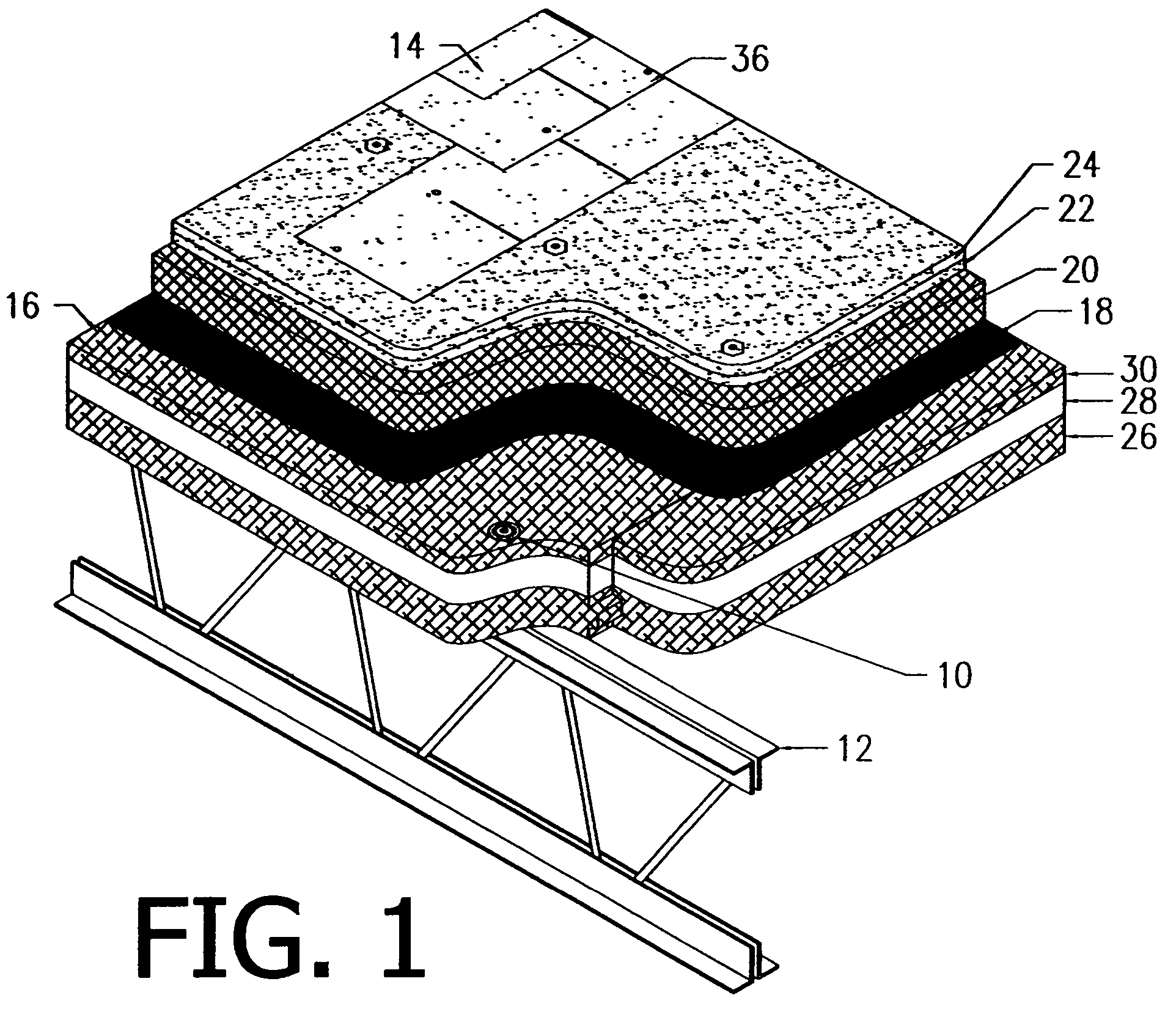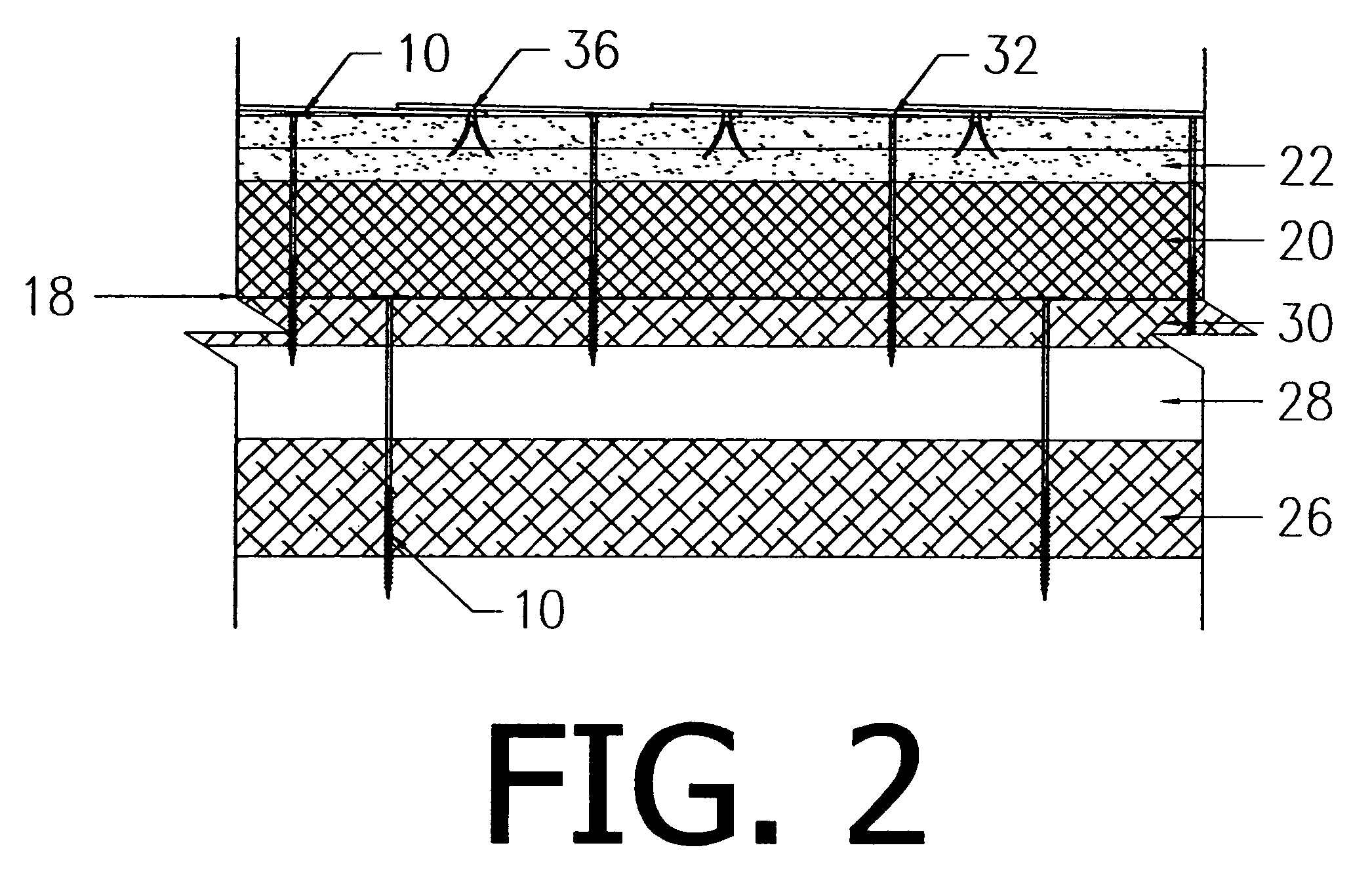Low noise roof deck system
a low-noise, roof-mounted technology, applied in the direction of roofs, building repairs, transportation and packaging, etc., can solve the problems of high thermal expansion coefficient of steel, movement of decking, and well-known noise, and achieve the effect of eliminating thermal expansion noise, low noise, and easy installation
- Summary
- Abstract
- Description
- Claims
- Application Information
AI Technical Summary
Benefits of technology
Problems solved by technology
Method used
Image
Examples
Embodiment Construction
[0021]As required, detailed embodiments of the present invention are disclosed herein; however, it is to be understood that the disclosed embodiments are merely exemplary of the invention, which may be embodied in various forms. Therefore, specific structural and functional details disclosed herein are not to be interpreted as limiting, but merely as a basis for the claims and as a representative basis for teaching one skilled in the art to variously employ the present invention in virtually any appropriately detailed structure.
[0022]A low noise roof deck system in accordance with the present invention is generally designated by the reference numeral 10 and is illustrated in FIG. 1 in an exemplary installation in association with a plurality of roof support members 12 and an overlying waterproof roofing membrane 14. The support members 12 may include trusses, joists, beams, purlins, subpurlins or any other structural elements or suitable combination of elements fabricated from steel...
PUM
 Login to View More
Login to View More Abstract
Description
Claims
Application Information
 Login to View More
Login to View More - R&D
- Intellectual Property
- Life Sciences
- Materials
- Tech Scout
- Unparalleled Data Quality
- Higher Quality Content
- 60% Fewer Hallucinations
Browse by: Latest US Patents, China's latest patents, Technical Efficacy Thesaurus, Application Domain, Technology Topic, Popular Technical Reports.
© 2025 PatSnap. All rights reserved.Legal|Privacy policy|Modern Slavery Act Transparency Statement|Sitemap|About US| Contact US: help@patsnap.com



